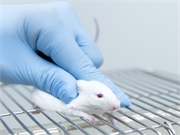Animal Study Offers Hope for Treating Traumatic Brain Injuries

TUESDAY, Nov. 19, 2019 (HealthDay News) -- In a finding that might one day counter some of the damage of severe brain injury in humans, researchers report that embryonic neurons implanted in brain-injured mice helped resurrect memory and eased seizures.
"The idea to regrow neurons that die off after a brain injury is something that neuroscientists have been trying to do for a long time," said study leader Robert Hunt, an assistant professor of anatomy and neurobiology at the University of California, Irvine. "But often, the transplanted cells don't survive, or they aren't able to migrate or develop into functional neurons."
In the study, the mice received transplants of embryonic progenitor cells that can produce inhibitory interneurons, a type of nerve cell that controls the activity of brain circuits. The brain injury was in the hippocampus, which is responsible for learning and memory.
The transplanted neurons migrated into the brain injury and formed new connections with the injured brain cells, the researchers said.
Within a month after treatment, the mice had improvements in memory, such as being able to tell the difference between a box where they'd had an unpleasant experience from one where they didn't. They were able to do this as well as mice that never had a brain injury, the findings showed.
The cell transplants also prevented epilepsy, which occurred in more than half of the mice with brain injury who did not receive the therapy, according to the report.
"Inhibitory neurons are critically involved in many aspects of memory, and they are extremely vulnerable to dying after a brain injury," Hunt explained.
"While we cannot stop interneurons from dying, it was exciting to find that we can replace them and rebuild their circuits," he added in a university news release.
The findings were published online Nov. 14 in the journal Nature Communications.
About 2 million Americans suffer traumatic brain injuries each year. Such injuries cause cell death and inflammation in the brain, and patients often suffer from lifelong memory loss and can develop epilepsy.
Currently, there are no treatments for people who suffer a head injury. If these results in mice can be replicated in humans, it could a prove a significant advance in treatment, but not all animal research pans out in humans.
More information
The American Academy of Family Physicians has more on traumatic brain injury.

The news stories provided in Health News and our Health-E News Newsletter are a service of the nationally syndicated HealthDay® news and information company. Stories refer to national trends and breaking health news, and are not necessarily indicative of or always supported by our facility and providers. This information is provided for informational and educational purposes only, and is not intended to be a substitute for medical advice, diagnosis, or treatment.

